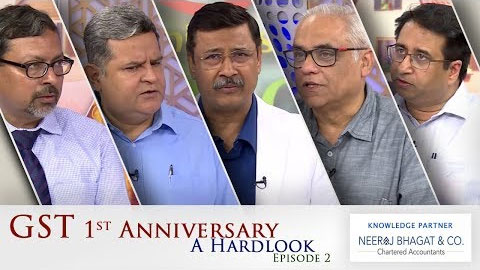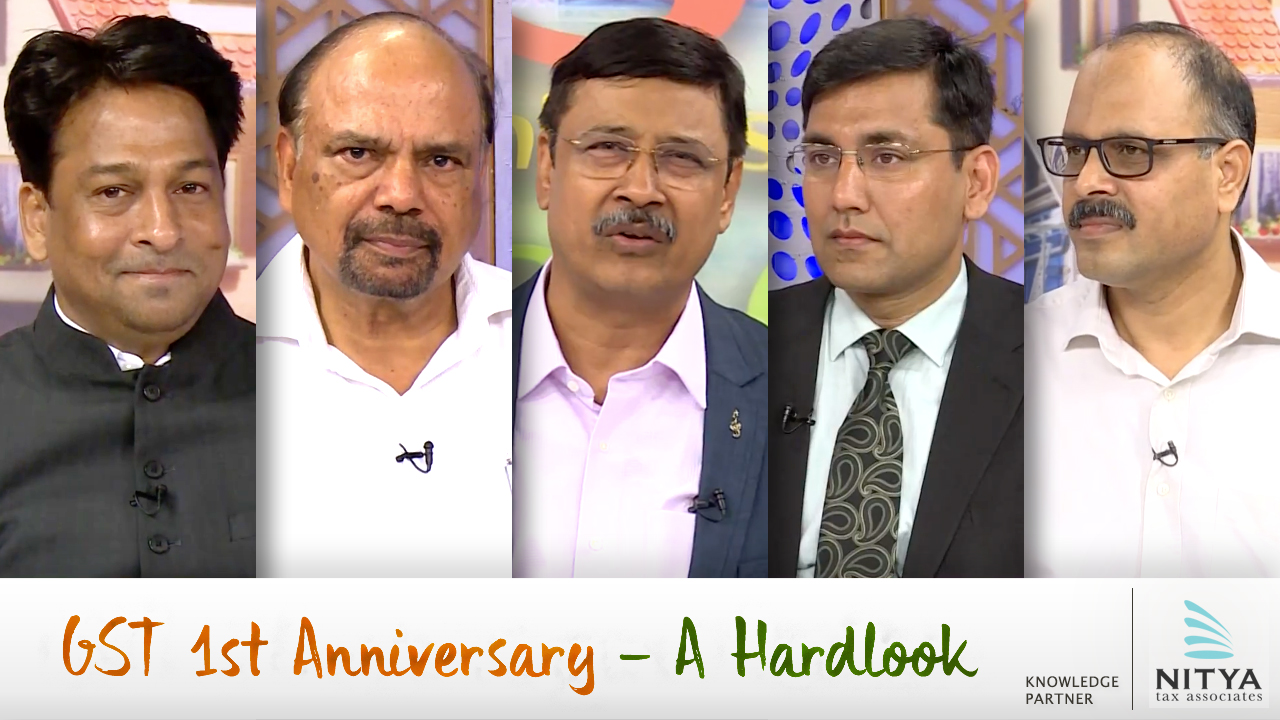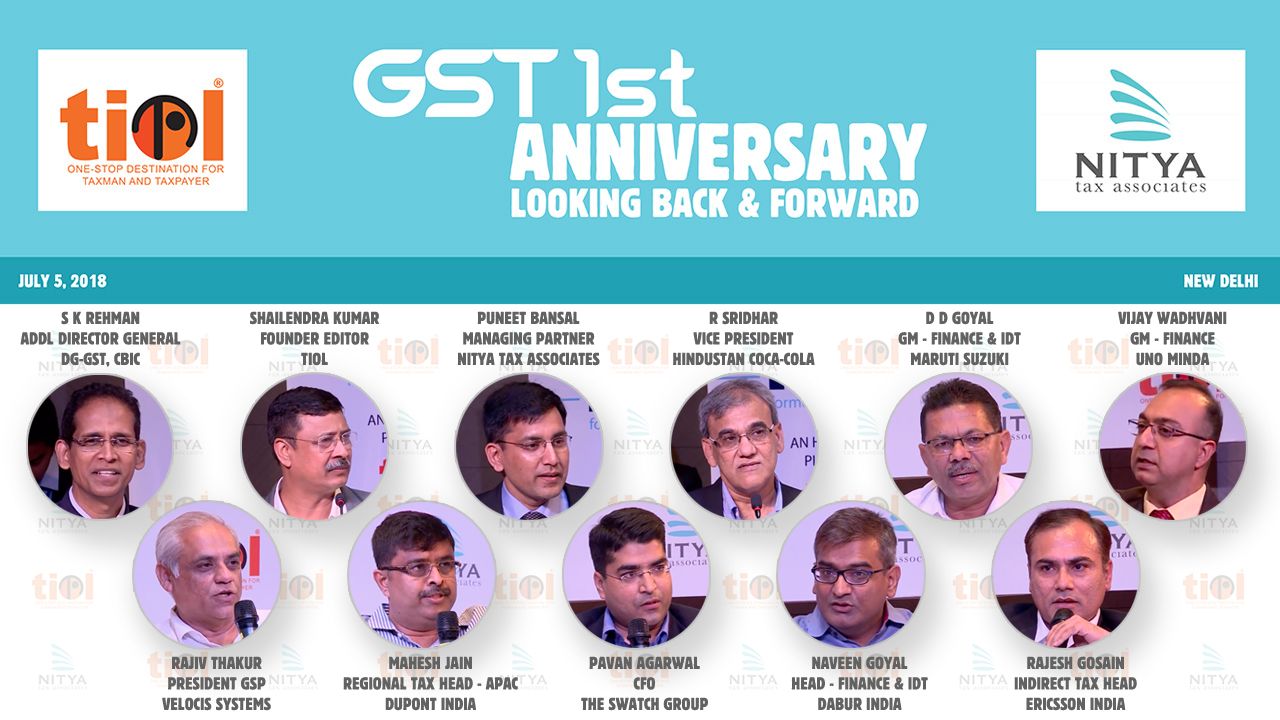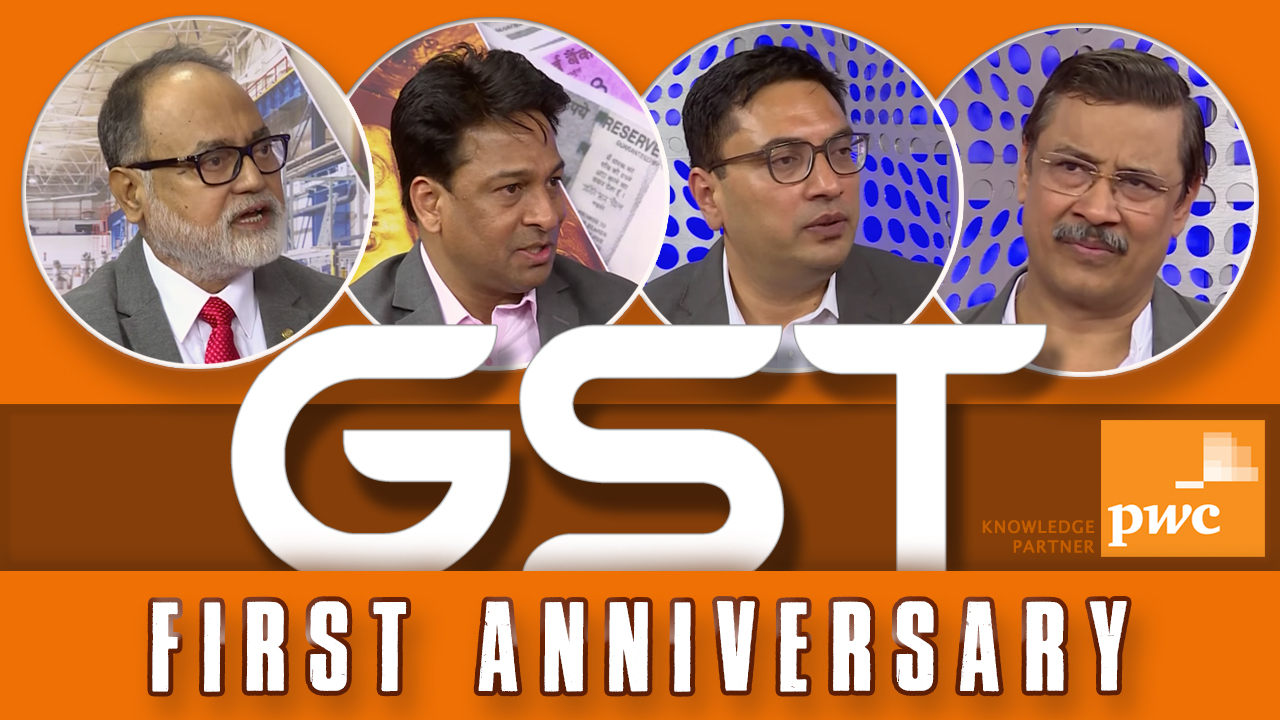SERVICE TAX
ST- The assessee was providing taxable services like Security Agencies, Business Auxiliary & Manpower Recruitment/Supply Service - It took centralized registration due to numerous branch offices - It availed Cenvat credit on the basis of invoices which were in the name of branch offices - However, the Revenue took a view that credit was inadmissible as the documents for availing credit was not proper - Duty demand was raised along with interest & penalty under Rule 15 (3) r/w Section 78 of the FA, 1994 - The Cenvat credit was disallowed w.r.t. credit taken on branch invoices, telephone & mobile bills were in the name of assessee-company, credit on E-bills/Xerox Copies of bills and bills for transportation of diesel to the telephone towers of the clients - on thOn appeal, the Commr.(A) upheld the OIO, however, it was held that Cenvat credit in respect of repair and maintenance was admissible - Solely on this issue, the case was remanded to the Adjudicating Authority to compute the amount and allow the same out of the total amount of disallowance - With respect to invoking extended period of limitation, it held that assessee failed to follow the prescribed procedures and availed Cenvat credit without valid documents relating to the period prior to taking centralized registration- Therefore, invoking extended period of limitation & penalty was valid on part of the Revenue - Hence, the present appeal by assessee - Held - The branch offices in question were not operational - However, revenue generated by them has been included in the centralized accounts maintained at the HO - Moreover, receipt of services at Branches is clear from ST returns - Therefore, Cenvat credit is fully allowable when the transactions has been included in the books of accounts regularly maintained - Likewise, in the case of Manipal Advertising Services vs CCE, the Tribunal on similar issues allowed the credit - Further, following the ratio laid down in the case of Telenet Systems Pvt. Ltd. vs CCE & CCE vs Excel Crop Care Ltd., the telephone service received on mobile phones of the assessee was held to be 'input service' and accordingly service tax paid was allowable - Besides, the proviso to Rule 9(2) provides that if the said documents does not contain all the particulars but contains the details of duty or service tax payable, description of the goods or taxable service like assessable value, registration number of the person issuing the invoice, name and address of the recipient of the invoice is satisfied - In addition, the goods or services covered by the document have been received and accounted for in the books of account of the receiver, the credit is allowable - Therefore, the documents on which E-bill were availed covers all the requirements of the Rule - Hence, credit is allowable - Lastly, the assessee is maintaining the mobile towers on behalf of their clients - For such maintenance they need to ensure availability of diesel for maintaining the services in case of power failure - The diesel is provided to the assessee by the client purchased by them by petro card & he transports it to the mobile towers site, where the generators are installed for maintaining the supply of service at the time of power failure - These are expenses incurred for carrying the diesel from the petrol pumps to the mobile towers - Therefore, they are essential input services for rendering the output service of maintenance of mobile towers, thereby allowable: CESTAT (Para 1, 2, 5) - Appeal Allowed : ALLAHABAD CESTAT
ST - Assessee is engaged in providing services under category of CHA - Demand has been raised due to the difference in figures of income shown in profit and loss account and the income shown in ST-3 returns - The assessee has explained that in all their invoices, they are showing the agency charges separately and paying the service tax on such amount - Invoices included other charges like transport charges, Steamer Agent charges and Warehouse charges which will be reflected in P&L Account, on which no service tax is payable - The authorities below have not accepted the explanation observing that assessee has not produced enough documents - Assessee has requested for further chance to establish the case - Therefore, matter remanded to the adjudicating authority to re consider the issue: CESTAT - Matter remanded : CHENNAI CESTAT
ST - ROM Application - Appeal was allowed by following the order of the Tribunal in appellant's own case reported as 2016-TIOL-2486-CESTAT-MUM which allowed credit of tax paid on services such as ‘erection, commissioning & installation', ‘consulting engineer', ‘technical testing and analysis', ‘design services' - appellant submits that out of the total credit of Rs.48,78,450/- that was denied by original authority, an amount of Rs.11,53,627/- pertains to services availed for ‘Construction and Works Contract Services' and which are specifically excluded from the definition of ‘Input service' and, therefore, the order needs to be rectified.
Held: Tribunal in its order dated 21.10.2016 - 2017-TIOL-975-CESTAT-MUM had erroneously allowed the entire credit that was denied by the original authority by following its earlier order - 2016-TIOL-2486-CESTAT-MUM - in view of the legal position, appeal is allowed except to the extent of credit of Rs.11,53,627/- used for rendering of ‘Construction and Works contract service' - appeal is partly allowed - ROM application is disposed of accordingly: CESTAT [para 2, 4, 5] - Application disposed of : MUMBAI CESTAT
2018-TIOL-1346-HC-KAR-CX + Case Story
Akzo Nobel India Ltd Vs CCE & ST
CX - Affirming the order passed by the lower authorities without recording its own detailed findings does not render such findings as perverse on its own: High Court [para 9]
CX - If the Appellate Authorities who are the fact finding authorities under the Act have returned such findings of facts based on evidence, the same cannot be assailed on the ground that they have gone beyond the scope of the Show Cause Notice: High Court [para 10] -
Appeal dismissed
: KARNATAKA HIGH COURT
2018-TIOL-2166-CESTAT-MUM
Hiralal Punju Badgujar Vs CCE
CX - the main appellent is a company engaged in manufacturing branded chewing tobacco & branded hookah tobacco - The Department alleged that it procured unaccounted raw materials using which it manuactured Zarda & cleared the same clandestinely without payment of duty by re-using the same set of invoices as well as a set of parallel invoices - Upon a visit to the appellant's factory, the Department noted there to be shortage of raw materials while excess quantities of Zarda were recorded - Statements of suppliers of raw tobacco were recorded - Besides, three parallel invoies indicating clandestine removal were found - Hence the Department alleged unaccounted production & clearance of goods - Duty demand was raised with interest - The other appellants herein were alleged to be recipients of money generated by the main appellant - Penalties were imposed on certain employees of the assessee company & also on some dealers engaged by the main appellant company - Hence the present appeals.
Held - There is no evidence corroborating either receipt of any unaccounted raw material by the appellant unit or any unaccounted production & removal of goods - There is no evience of raw material, packing material or extra labor used or any payment of unaccounted wages or extra use of power - The goods have no buyer & there is no evidence of any consideration received against the goods - Regarding the parallel invoices, there is no authentic sources as to who provided copies of the same - In fact one such party which allegedly received goods under cover of two parallel invoices later retracted its statements - Besides, the Revenue found no other buyer of goods except the alleged parallel invoice - Besides, no excess quantity of finished goods were found - Hence the allegation of clandestine removal is unsustainable - Hence duty demand raised on main appellant company is set aside - Consequently, the penalties imposed on the other appellants are set aside as well: CESTAT (Para 1,5) -
Appeals Allowed
: MUMBAI CESTAT
2018-TIOL-2156-CESTAT-MUM
Indoworth India Ltd Vs CCE
CX - Assessee, a 100% EOU removed the certain quantity of Poly Wool waste and All Wool waste to DTA in terms of para 9.9(a) of EXIM Policy 1997-2002 and paid 50% of BCD leviable under similar goods imported into India in terms of Notfn 2/95-CE - Lower authorities have sought to apply provisions of paragraph 9.9(b) of the Policy to the clearance of polywool waste ana all wool waste - The assessee have claimed that prior to 1.4.2001, the provisions of para 9.9(b) of the Policy was not applicable to the clearance made in para 9.20 of the EXIP Policy 1997-2002 - In this regard, Tribunal in case of Nahar Industrial Enterprises Ltd. has observed that the sale of waste is not to be included in the DTA sales permission - Impugned order relies on the amendment made in Policy on 1.4.2001 to confirm the demand and penalty - In these circumstances, no merit found in said order: CESTAT - Appeal allowed : MUMBAI CESTAT
CX- The assessee availed subsidy under the The Rajasthan Investment Promotion Scheme - Under this scheme the assessee got credit of certain subsidy on account of wages and loans subsidy which was credited to their account with VAT 37B challan which was used for discharge of sales tax liability - The Revenue opined that the subsidy availed is additional consideration - Duty demand was raised - Held - T he incentive is in the nature of subsidy which have been received from the State Government and therefore such subsidy cannot be considered as an additional consideration - This follows from the decision of assessee's own case of Ultra Tech Cement Ltd. Vs CCE wherein cenvat credit was allowed relying on the ratio of M/s Shree Cement Ltd. vs. CCE - Therefore, the order-in-original is set aside: CESTAT (Para 2, 4, 5) - Appeal Allowed : DELHI CESTAT
CX - On the day of visit of officers to the factory of assessee, unaccounted goods were found lying which was placed under seizure - Assessee contends that said goods were in semi-finished condition and in support, Chartered Engineer Certificate is placed on record - Considering the fact that, no finding has been recorded by adjudicating authority, even though in their defence, the assessee has vehemently argued about the fact that the goods were semi-finished condition, on the face of the Chartered Engineer's Certificate and also since the goods are still lying in the factory premises, matter is remanded to the adjudicating authority to verify the fact whether the goods are in semi-finished condition or in finished condition, in the interest of justice: CESTAT - Matter remanded : AHMEDABAD CESTAT
CUSTOMS
NOTIFICATION
ctariff18_052
Customs - CBIC expands list of exempt items for handicraft sector
CASE LAWS
Cus - the assessee manufactures various copper products - For this, it imports copper concentrates which are used as raw material - Since most of the copper concentrate is guided by the London Metal exchange (LME) prices, the supplier of the same were originally raising the provisional invoices - After 3-4 months, the provisional invoices were converted into final invoices, based on which the assessee paid duty originally short paid - Later, the assessee filed claim for refund of duty so paid - However, such claim was denied on grounds of unust enrichment.
Held - The Tribunal examined similar issues in the case of Hindustan Copper Ltd., Vs. Commissioner of CE, Jaipur wherein it held that in as much as the final product price is being determined on LME prices, the unjust enrichment angle is not required to be examined - As the matter in the present appeal involves unjust enrichment, the stand of the Revenue is unsustainable: CESTAT (Para 4,6,10,11) - Assessee's Appeals Allowed : CHENNAI CESTAT
Cus- The assessee was a registered STPI Unit engaged in development of software - For that purposes they have system running on continuous basis - They required un-interrupted power supply for which they have installed UPS at different units to ensure that in case of power failure, the systems automatically get power supply so that the software development activities are not hampered - For its own use the assessee imported Lead Acid Batteries - The Revenue took a view that assessee has violated the relevant rules as it did not have the registration to import the subject goods - The goods were confiscated & duty demand was raised - Subsequently, they were released provisionally under bond - On appeal, the Commr. (A) upheld the SCN and imposed penalty - Hence, the present appeal.
Held - As per section 5 of Batteries (Management & Handling) Rules, 2001 only a person who imports lead acid batteries for the purpose of sale is required to furnish a certificate - The assessee is the actual user and the lead batteries have been imported not for the purpose of sale - The condition of filing the registration certificate, though not applicable in toto, has been substantially complied by them - There was some delay in obtaining the certificate and meanwhile the original authority has passed the order confirming the demand - Following various decisions of the Tribunal the confiscation is unnecessary - Hence, the penalty is deleted and order challenged is set aside : CESTAT (Para 1, 5, 6) - Appeal Allowed : CHENNAI CESTAT
|




 By Disha Jain
By Disha Jain




